Your Cart is Empty
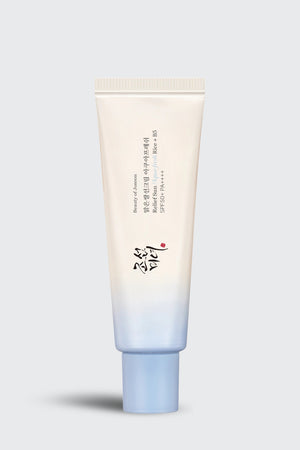
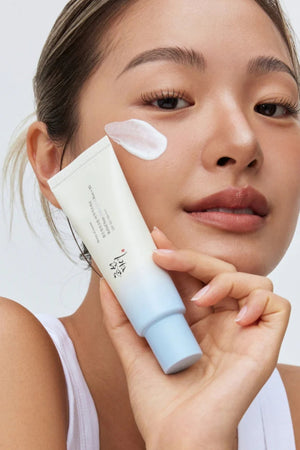
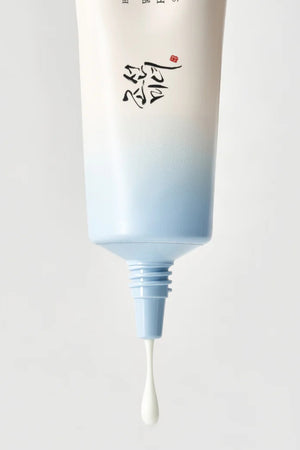
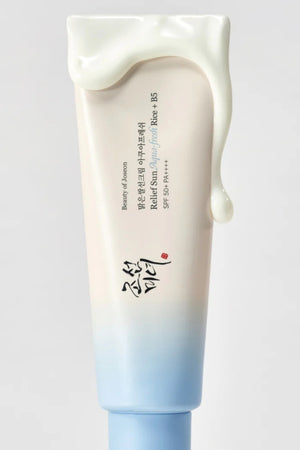
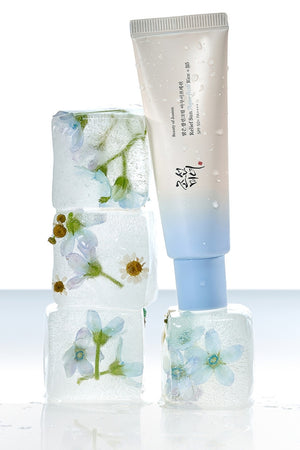
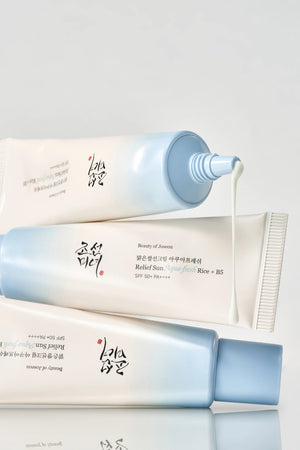
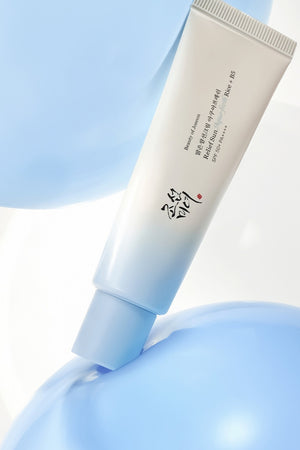
let's recycle!
Yay—let's recycle! Here’s a quick guide for when you've finished using all your products:
1. Make the products 'recycle ready' by rinsing it out and cleaning it. What if the product doesn't work for me? Give it to someone who might like to try it! That way, you will minimise wastage and give the product a second home. ♡♡
2. Get the DETAILS! Typically, most skin care packaging is recyclable in Australia, but what can and can’t be recycled depends on where you live. A quick Google search will reveal a recycling guideline based on your state / territory.
3. Can I put this in my recycling bin? If you've checked and the answer is 'yes', give these items a second life and put them in the recycling bin. If it's not, look into enterprises like TerraCycle, to help you properly recycle your beauty products. If the product is recycable through TerraCycle, it is FREE and all you have to do is gather your empty products together, print a recycling label and ship it out - that’s it! They’ll take care of the rest for you.
FYI, recycling plants uses numbers ranging from 1 to 7 to help sort all the materials. PETE stands for Polyethylene Terephthalate and PP stands for Polypropylene — these are both plastics. PAP represents paper / mixed paper / cardboard. See Earth Easy to learn more about your plastics.
That's it babes! Remember to love our earth; love our planet! #dontbetrashy
Sold out
Beauty of Joseon Sunscreen - Relief Sun Aqua-Fresh - 50ml
$27.00

Finally, a Beauty of Joseon sunscreen for oily skin! Enter the relief Sun Aqua Fresh: an ultra-lightweight formula that disappears into the skin for a natural finish. You'll want to pick this if you liked the Probiotics Relief Sun Essence, but found it too moisturising and dewy. This chemical formula uses ingredients like Rice Seed Water, panthenol and hyaluronic acid for a hydrating (but not oily application. The brand describe it as weightless which is spot on - it has the feel of a lotion and absorbs in seconds. Perfect for frequent re-appliers!






50ml.
Product of Korea.
We tried this sunscreen, checkout our review! Wanna know more about this brand? Check out our Beauty of Joseon Buying Guide.
Ideal for combination to oily skin, or anyone who wants a lightweight SPF.
Apply at the very last step of your skincare routine, about 30 minutes before sun exposure. Re-apply every two hours.
Precautions:
Stop using the product immediately and consult a dermatologist when redness, swelling, or other skin irritations occur, and consult a physician. Avoid applying the product on open wounds or skin inflammation. Keep away from direct sunlight and out of reach of infants and children.
Water, Oryza Sativa (Rice) Seed Water, Dibutyl Adipate, Butyloctyl Salicylate, Ethylhexyl Triazone, Drometrizole Trisiloxane, Polyglyceryl-3 Distearate, Terephthalylidene Dicamphor Sulfonic Acid, Diethylamino Hydroxybenzoyl Hexyl Benzoate, Polymethylsilsesquioxane, Tromethamine, 1,2-Hexanediol, Panthenol, Pentylene Glycol, Glyceryl Stearate, Silica, Caprylyl Methicone, Bis-Ethylhexyloxyphenol Methoxyphenyl Triazine, Propanediol, Potassium Cetyl Phosphate, Poly C10-30 Alkyl Acrylate, Methylpropanediol, Carbomer, Acrylates/C10-30 Alkyl Acrylate Crosspolymer, Ethylhexylglycerin, Xanthan Gum, Glycerin, Polyether-1, Avena Sativa (Oat) Kernel Extract, Cynara Scolymus (Artichoke) Leaf Extract, Polyquaternium-51, Camellia Sinensis Leaf Water, Hydrogenated Lecithin, Beta-Glucan, Biosaccharide Gum-1, Inositol, Tocopherol, Ferulic Acid, Oryza Sativa (Rice) Bran Oil, Citric Acid, Ceramide NP, Phytosphingosine, Sodium Hyaluronate, Rice Amino Acids, Rice sh-Oligopeptide-1.
Ingredients subject to change at manufacturer's discretion. For the most complete and up-to-date list of ingredients, please refer to product packaging.
Frequently Asked Questions
Is Beauty of Joseon Relief Sun Rice + Probiotics a chemical sunscreen?
The Relief Sun Rice + Probiotics is a chemical sunscreen. This is because it doesn't use physical filters such as zinc and titanium dioxide to protect skin from UV rays: instead, it uses chemical filters, such as (get ready for some long words) Diethylamino Hydroxybenzoyl Hexyl Benzoate, Ethylhexyl Triazone, Methylene Bis-Benzotriazolyl Tetramethylbutylphenol and Diethylhexyl Butamido Triazone. These are all next-generation UV filters and are super effective but are yet to be tested and approved as a sunscreen agent by the TGA (although some are already in use in Europe by large companies like Avene and SVR). Hence, you will not find it sunscreens coming from Australia. This is also why Beauty of Joseon's SPF is marketed as a "sun essence" rather than a "sunscreen".
Is the Beauty of Joseon sunscreen actually SPF 50?
The Relief Sun Rice + Probiotic's rating appears to be actually higher than 50. Its SPF and PA rating were tested both in Korea and in Spain (the latter in accordance with EU standards), and the results were as follows: Its SPF rating was given a 52.5 ± 5.8 by the Korean lab, and 63.1 ±0.6 by the Spanish lab. Meanwhile, its PA rating was determined to be UVA PF 16.1±2.4 P++++ by the Korean Lab, and UVA PF 19 P+++ by the Spanish Lab. The chemical filters that Beauty of Joseon uses (Diethylamino Hydroxybenzoyl Hexyl Benzoate, Ethylhexyl Triazone, Methylene Bis-Benzotriazolyl Tetramethylbutylphenol and Diethylhexyl Butamido Triazone) are all next-generation UV filters, and are yet to be tested and approved as a sunscreen agent by the TGA (although some are already in use in Europe by large companies like Avene and SVR). Hence, you will not find sunscreens coming from Australia. This is also why Beauty of Joseon's SPF is marketed as a "sun essence" rather than a "sunscreen".
Can it cause acne?
There is nothing in the Beauty of Joseon Sunscreen Essence's formula that suggests it could cause acne; the ingredients are generally clean and non-pore-clogging. In this sense, it is pretty good for acne-prone skin, particularly if it's accompanied by dryness. The only caveat we would put here is that the formula is a dewy one: and while it is lightweight, it might not be the best suited for oily skin or those looking to cut down on the shine factor.
Does the Probiotics Relief Sun Essence have a white cast?
The Beauty of Joseon Probiotics Relief Sun Essence does not leave even a hint of a white cast, hooray! This is because it is a chemical sunscreen, and skips mineral filters - which, while super effective at protecting skin from UV rays, aren't exactly melanin-friendly. This product can therefore be comfortably used by everyone, no matter what the skin tone.
Is Beauty of Joseon a clean brand?
By Kanvas Beauty's definition, Beauty of Joseon is a clean Korean skincare brand. By this, we mean that it doesn't use any parabens, sulfates, phthalates, PEGs, ethanol and any ingredients associated with toxicity in its formulas. Moreover, for the highly sensitive, its newest formulas also skip fragrances, both artificial and natural.
is this sunscreen waterproof?
As far as we know, BOJ has made no claims as to whether its sunscreen is waterproof. Hence, for your protection, assume it isn't. After excessive sweating or being in the water, remember to always re-apply!








